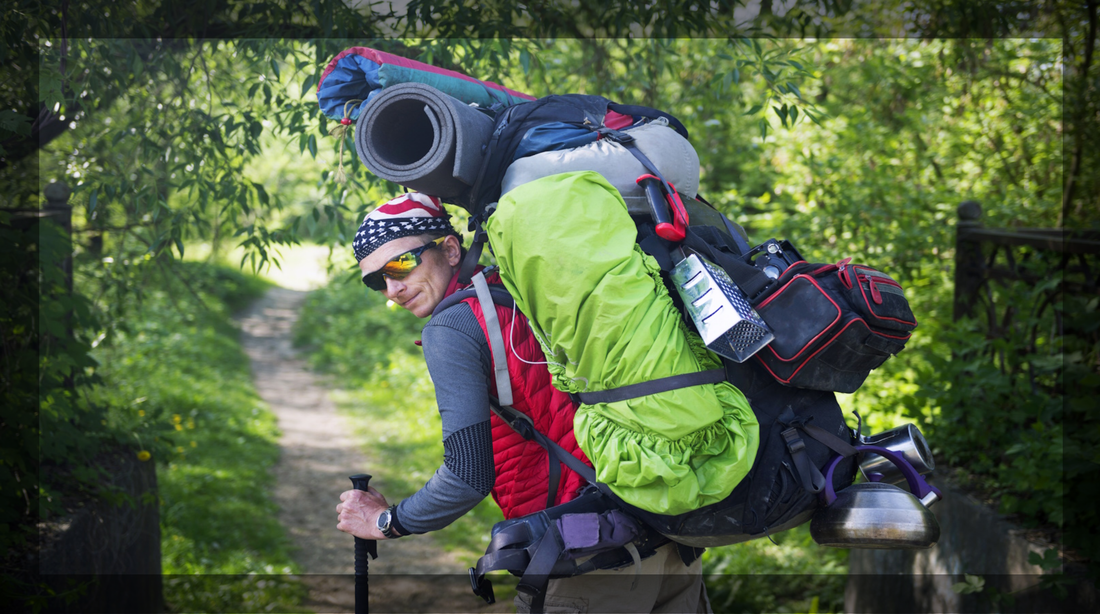
Lighten Your Load: A Quick Guide to Reducing Backpack Weight for Backcountry Adventures
Share
In this guide, we will explore various strategies and techniques to help you reduce the weight of your backpack.
Heading into the backcountry is an exhilarating experience, offering a chance to disconnect from the hustle and bustle of everyday life and immerse oneself in nature’s beauty. However, carrying a heavy backpack can quickly turn this adventure into a strenuous challenge. In this guide, we will explore various strategies and techniques to help you reduce the weight of your backpack, making your backcountry experience more enjoyable and manageable.
1. Evaluate Your Gear The first step in lightening your backpack is to take a close look at the gear you plan to bring. Evaluate each item critically and ask yourself whether it is essential. Consider multi-purpose items that can serve multiple functions, thus reducing the number of individual items you need to carry. Invest in lightweight and compact gear, such as tents, sleeping bags, and cooking equipment, designed specifically for backpacking.
2. Choose the Right Backpack Selecting an appropriate backpack is crucial for weight distribution and overall comfort. Opt for a backpack that fits your body well and has enough compartments to help organize your gear efficiently. Lightweight backpacks made from durable materials like ripstop nylon are readily available and can significantly reduce your overall pack weight.
3. Pack Smartly Learning how to pack your backpack efficiently is an art in itself. Place heavy items closer to your back and towards the middle of the pack to maintain balance. Utilize stuff sacks and compression bags to condense your clothing and sleeping bag, saving valuable space. Distribute the weight evenly on both sides of the backpack to avoid strain on one particular area of your back.
4. Evaluate Your Clothing When it comes to clothing, opt for lightweight and moisture-wicking materials that are versatile across different weather conditions. Choose clothing items that can be layered, allowing you to adjust your body temperature without carrying multiple heavy garments. Remember that it’s better to have a few high-quality, lightweight layers than numerous bulky ones.
5. Rethink Your Food and Water Food and water are essential for any backcountry trip, but they can add significant weight to your backpack. Consider dehydrated or freeze-dried meals, which are lightweight and easy to prepare with just boiling water. Invest in a portable water filter or purification tablets to source water from streams and lakes along the way, eliminating the need to carry excessive amounts of water.
6. Minimalist Cooking If you enjoy hot meals on the trail, opt for compact and lightweight cooking systems like ultralight stoves and titanium cookware. Plan meals that require minimal preparation and cook time, reducing the amount of fuel you need to carry. Additionally, consider sharing cooking equipment and food with your hiking companions to further reduce the load.
7. Ditch Unnecessary Items It’s easy to fall into the trap of over-packing, especially when you are uncertain about the conditions you might face. Evaluate your items critically and leave behind anything that falls into the “just in case” category. Common culprits include excessive toiletries, heavy books, and non-essential electronic gadgets. Embrace the minimalist mindset and carry only what is absolutely necessary.
8. Invest in Lightweight Technology Technology has come a long way in the outdoor industry, offering lightweight alternatives to traditional gear. For instance, consider using a lightweight inflatable sleeping pad instead of a bulky foam pad. Use a lightweight, compact headlamp instead of a heavy flashlight. These small changes can add up, significantly reducing your overall pack weight.
9. Educate Yourself Knowledge is a powerful tool when it comes to reducing backpack weight. Educate yourself about the flora and fauna of the backcountry you plan to visit. This knowledge can help you make informed decisions about gear and necessities. For instance, if you are confident about the availability of natural water sources, you can carry less water, lightening your load considerably.
10. Regularly Review and Update Your Gear As technology advances and your outdoor skills improve, regularly review and update your gear. Newer, lighter options are constantly being introduced to the market. Keep an eye on gear reviews and participate in outdoor forums to stay updated with the latest developments. Upgrading your gear strategically can lead to significant weight savings.
Heading into the backcountry should be a liberating and enjoyable experience. By carefully evaluating your gear, adopting a minimalist mindset, and staying informed about lightweight alternatives, you can significantly reduce the weight of your backpack.
Lightening your load not only makes your journey more comfortable but also allows you to move more efficiently, ultimately enhancing your connection with nature. So, embrace the principles of lightweight backpacking, and let the backcountry adventure begin!
